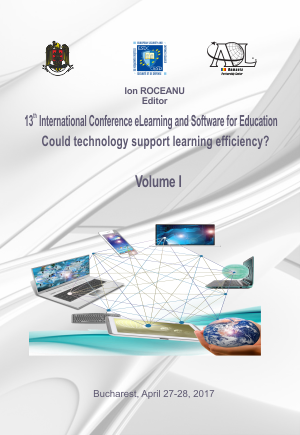CONCEPT: SOCIAL NETWORK EDUCATIONAL PLATFORM
CONCEPT: SOCIAL NETWORK EDUCATIONAL PLATFORM
Author(s): Cătălin Ionuţ Silvestru, Marian-Ernuț Lupescu, Virgil Ion, Ramona Camelia Silvestru (Bere)Subject(s): Social Sciences, Education
Published by: Carol I National Defence University Publishing House
Keywords: Social Networks; Education; Social Media; Lifelong Learning.
Summary/Abstract: Due to the growing involvement of social networks in economic, politic and social aspects of people’s lives and taking into account that social networks represent the main ICT means of socializing, having a steady increase of users each year, we the authors consider that social networks can have a positive impact on education, and also, if combined with educational tools, can be used efficiently in a non-formal and informal educational purpose. Thus, this paper sets out to analyse the current use of social networks in educational purposes in order to understand the impact social networks have on education, either positive or negative, and afterwards the authors will create a theoretical model of how a social network for educational purposes should work after analysing the current theoretical functionalities that such a social tool has and comparing them with the theoretical functionalities that an educational platform has. Thus, by analysing the main aspects in regards to how social networks function and how people interact with them, and also doing the same for educational platforms, we the authors will construct a theoretical model that combines the aspects that we consider are necessary for a Social Network Educational Platform to have in order to balance out each negative aspect that both sides have in regards with what user feedback has offered over the last years. The statistical analysis, that will be presented in order to show the importance of social networks in non-formal and informal education and also information on the use of e-learning platforms, will be focused on absolute and relative statistical indicators. The authors believe that the concept used in this current paper can be used as a guideline for further developing more social network educational platforms and tools that take into account Social Media, Social Networks and have a more positive impact on how adults and students see and use ICT for informal and non-formal learning purposes.
Journal: Conference proceedings of »eLearning and Software for Education« (eLSE)
- Issue Year: 13/2017
- Issue No: 01
- Page Range: 525-530
- Page Count: 6
- Language: English

